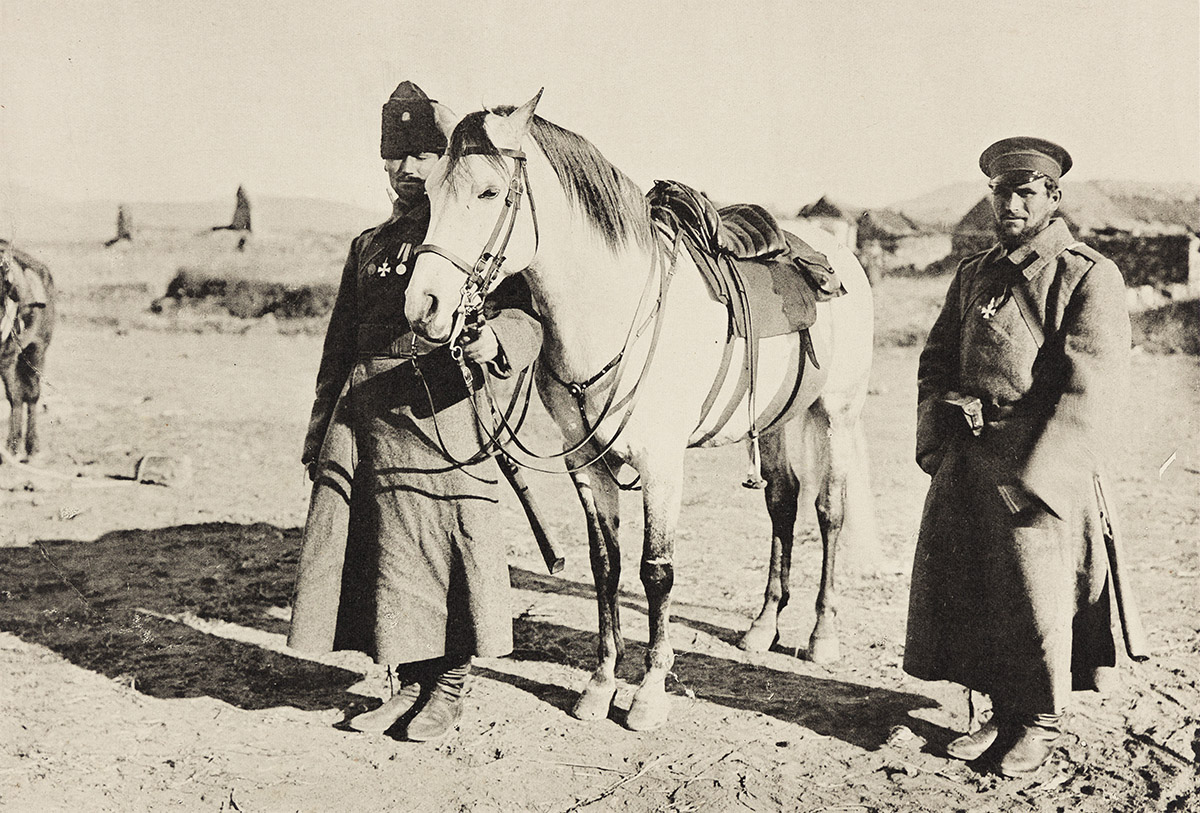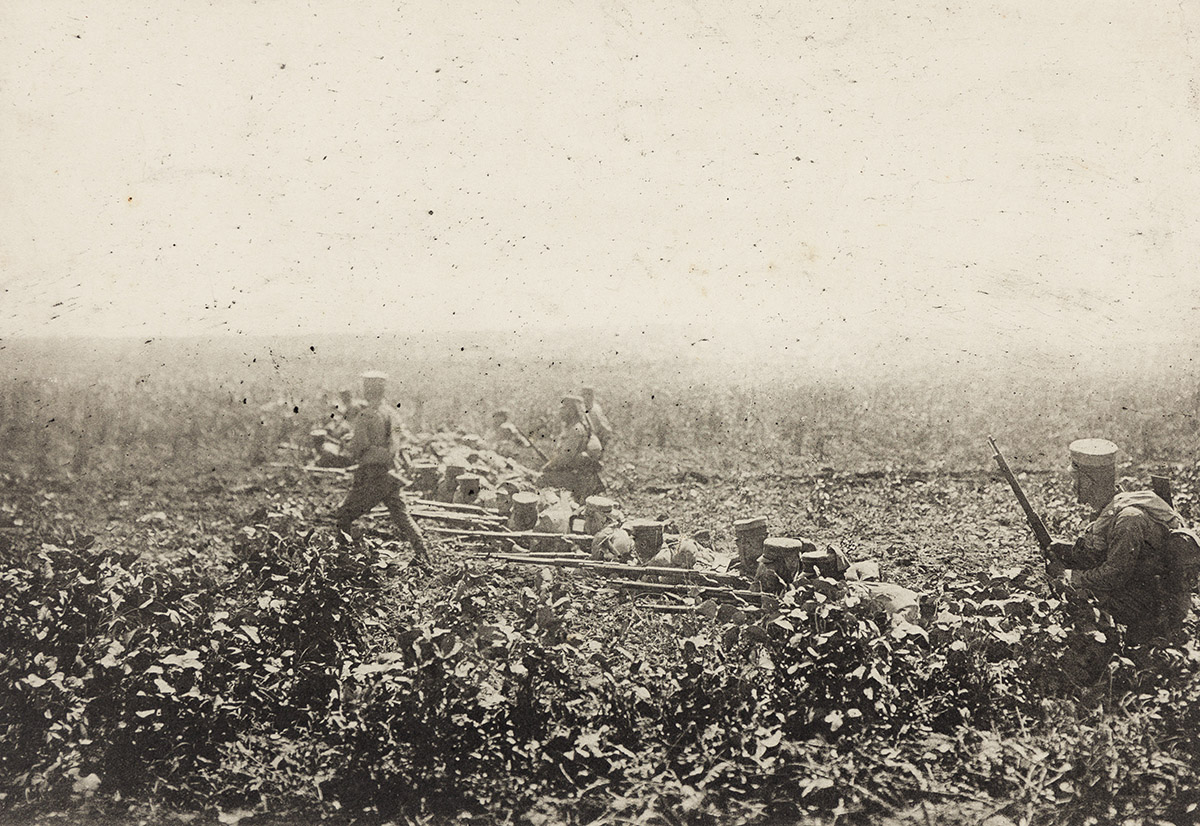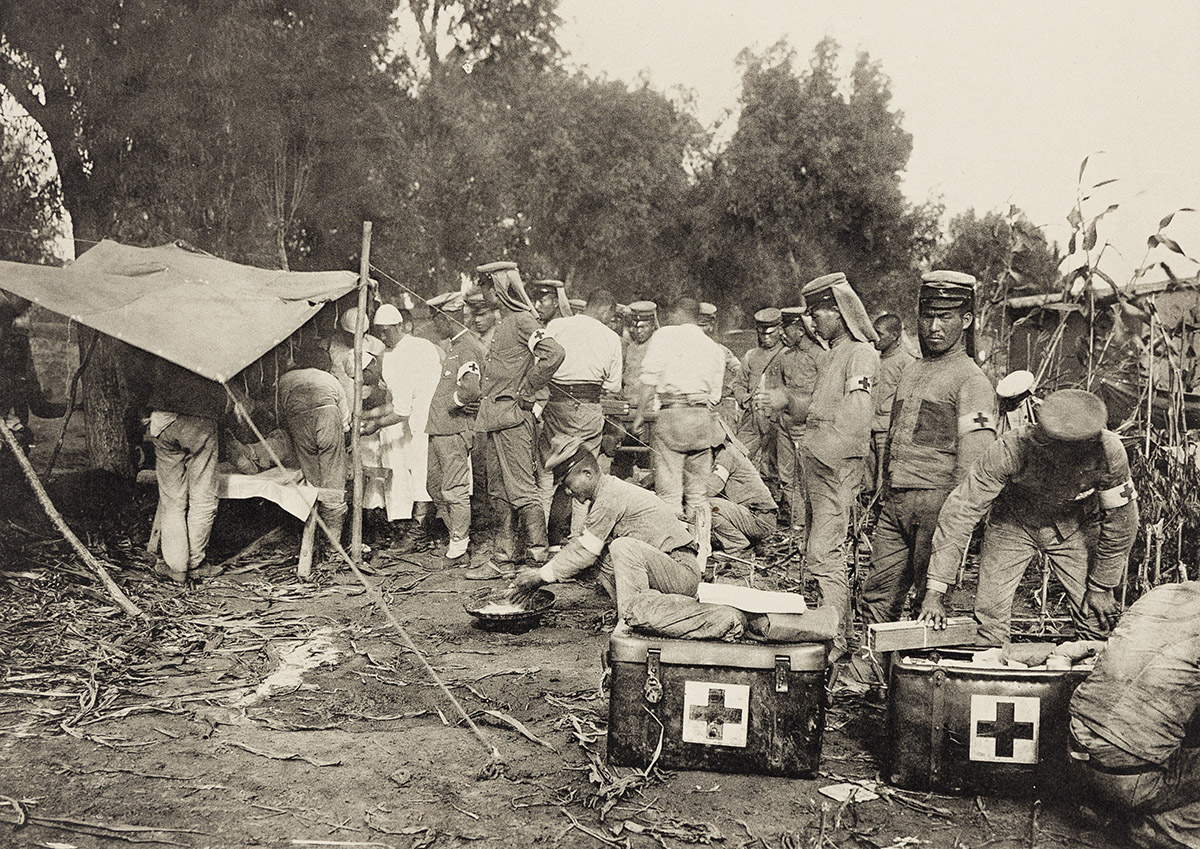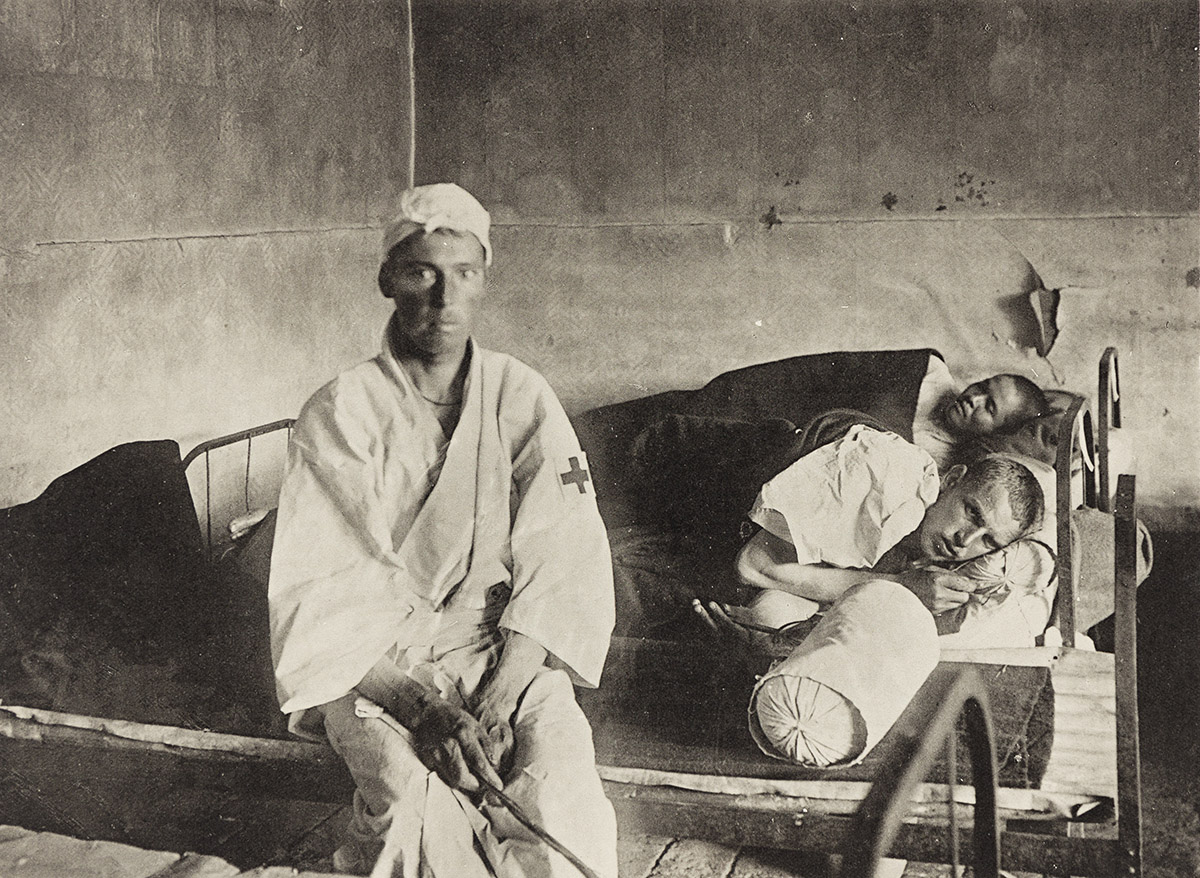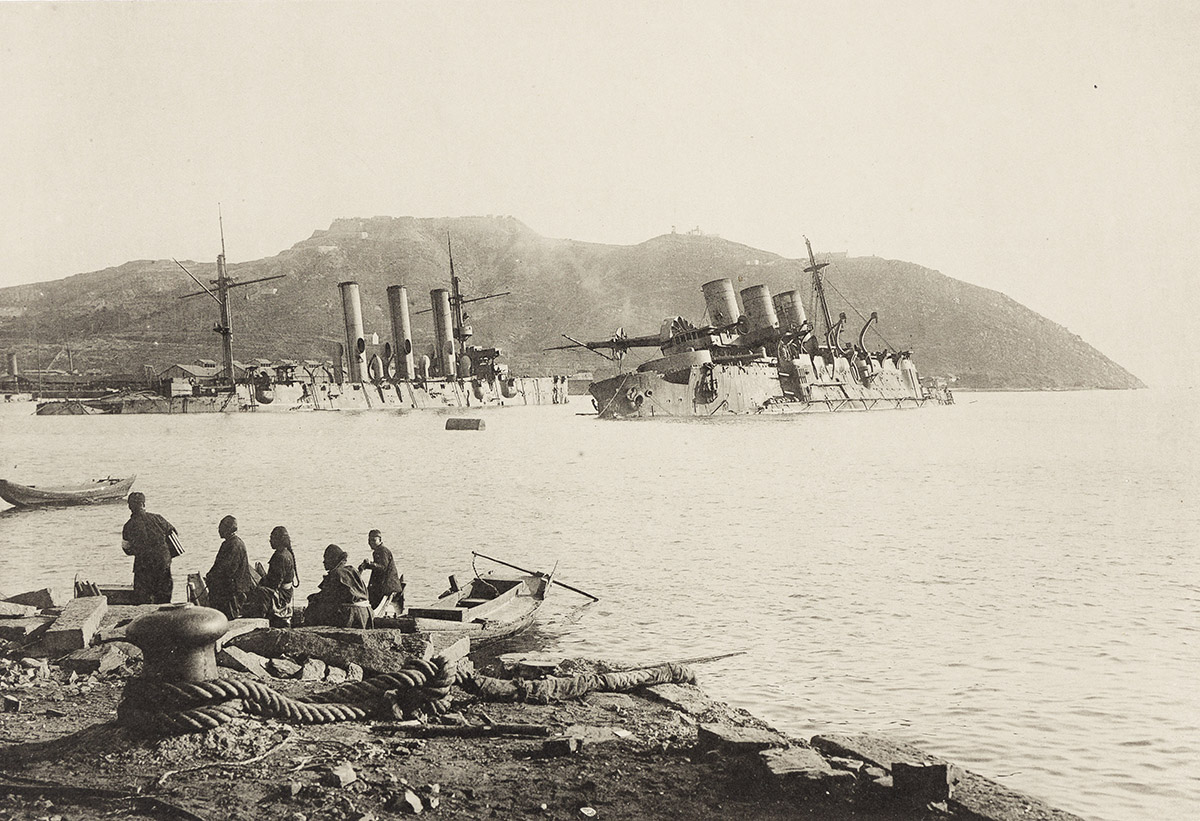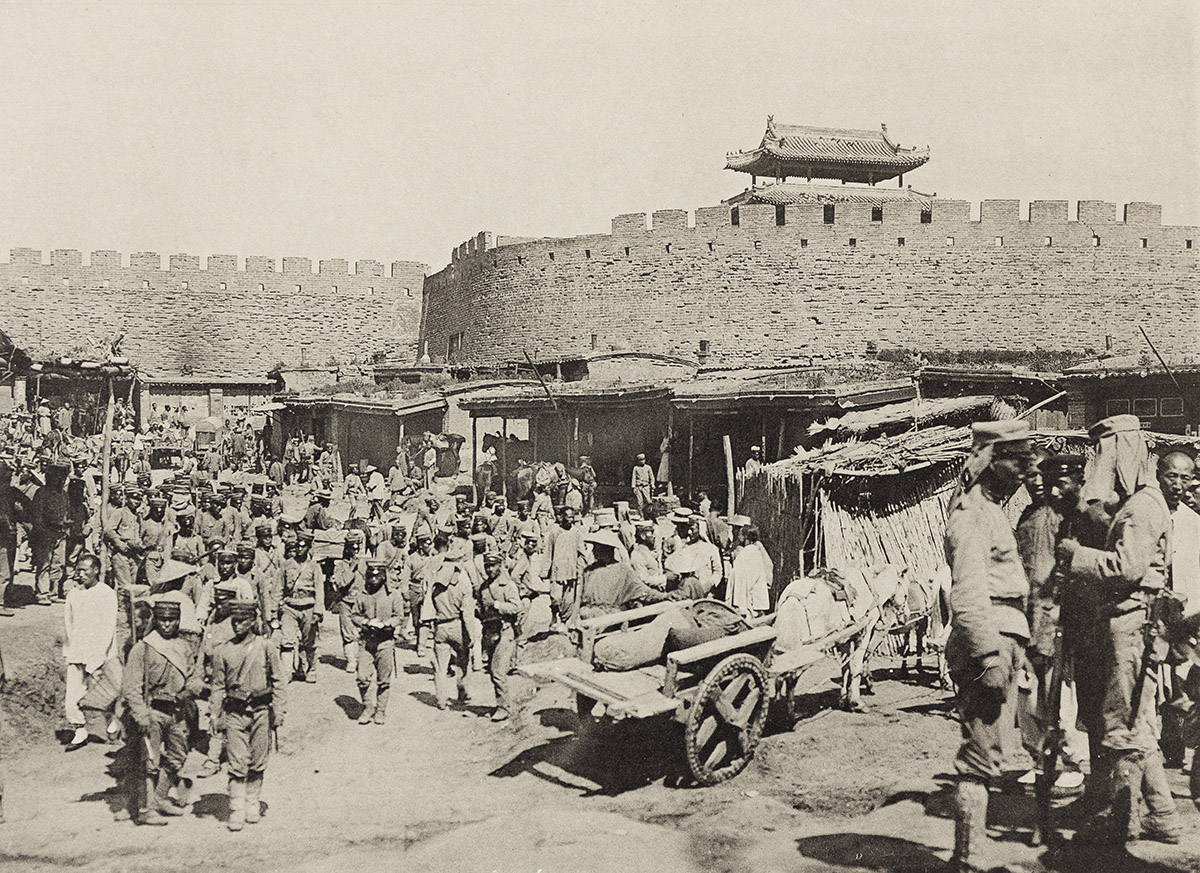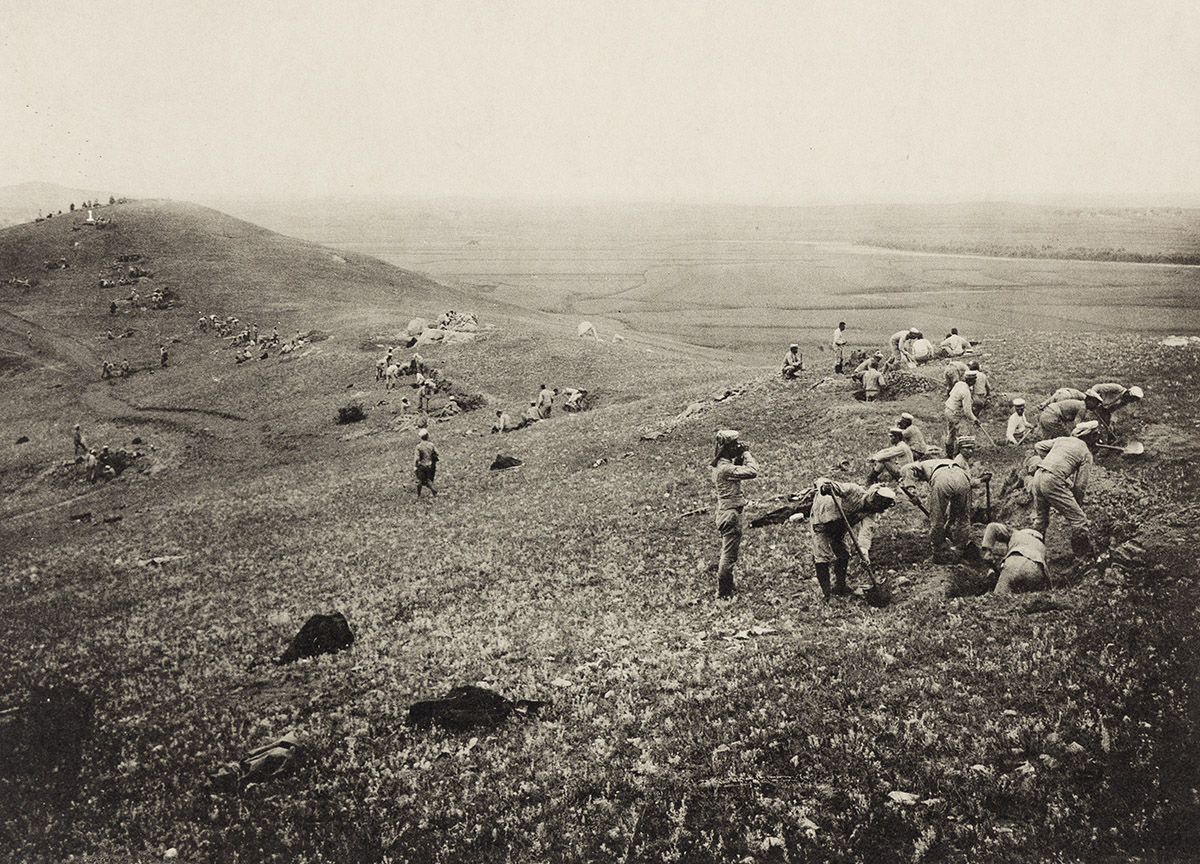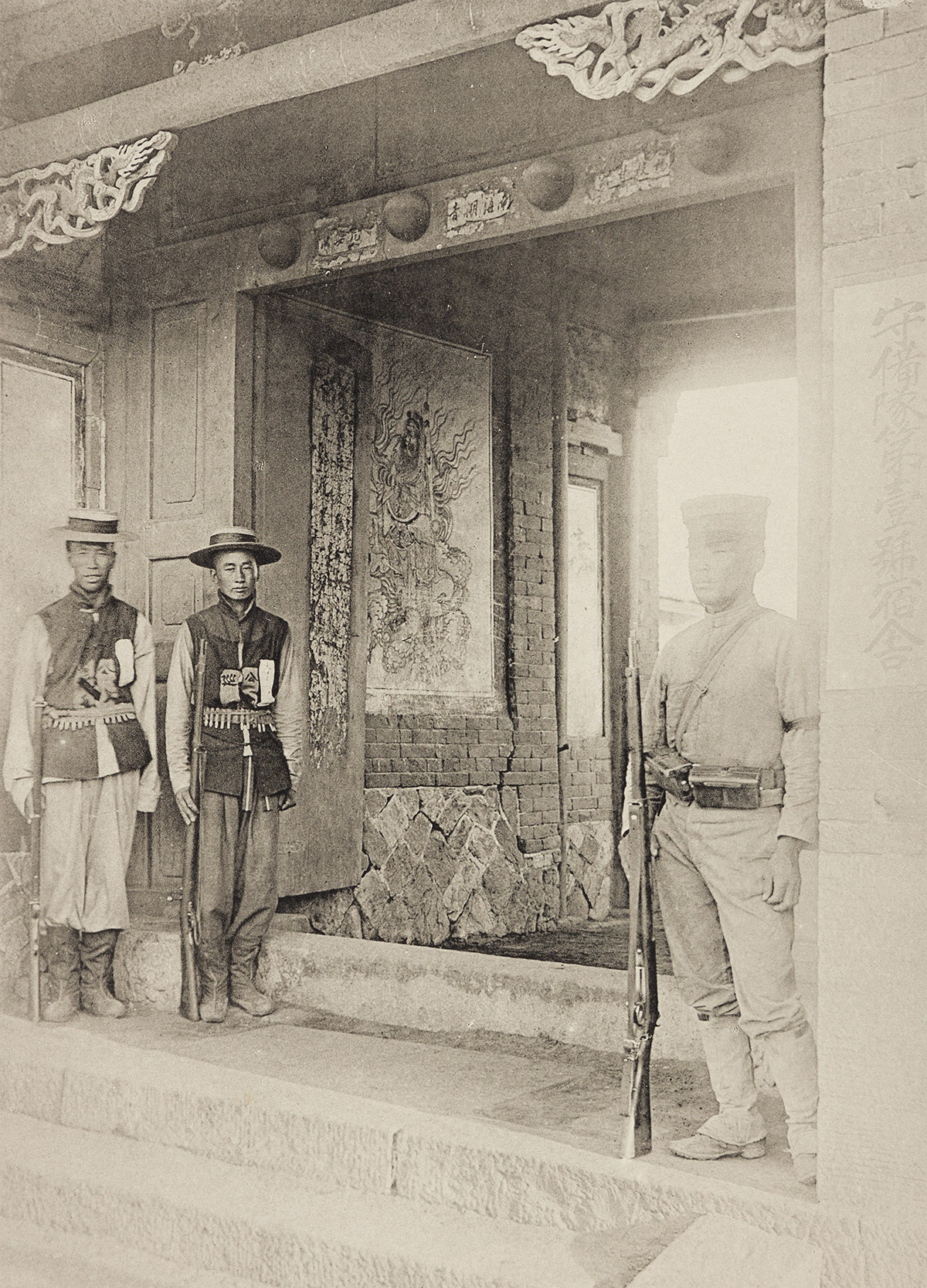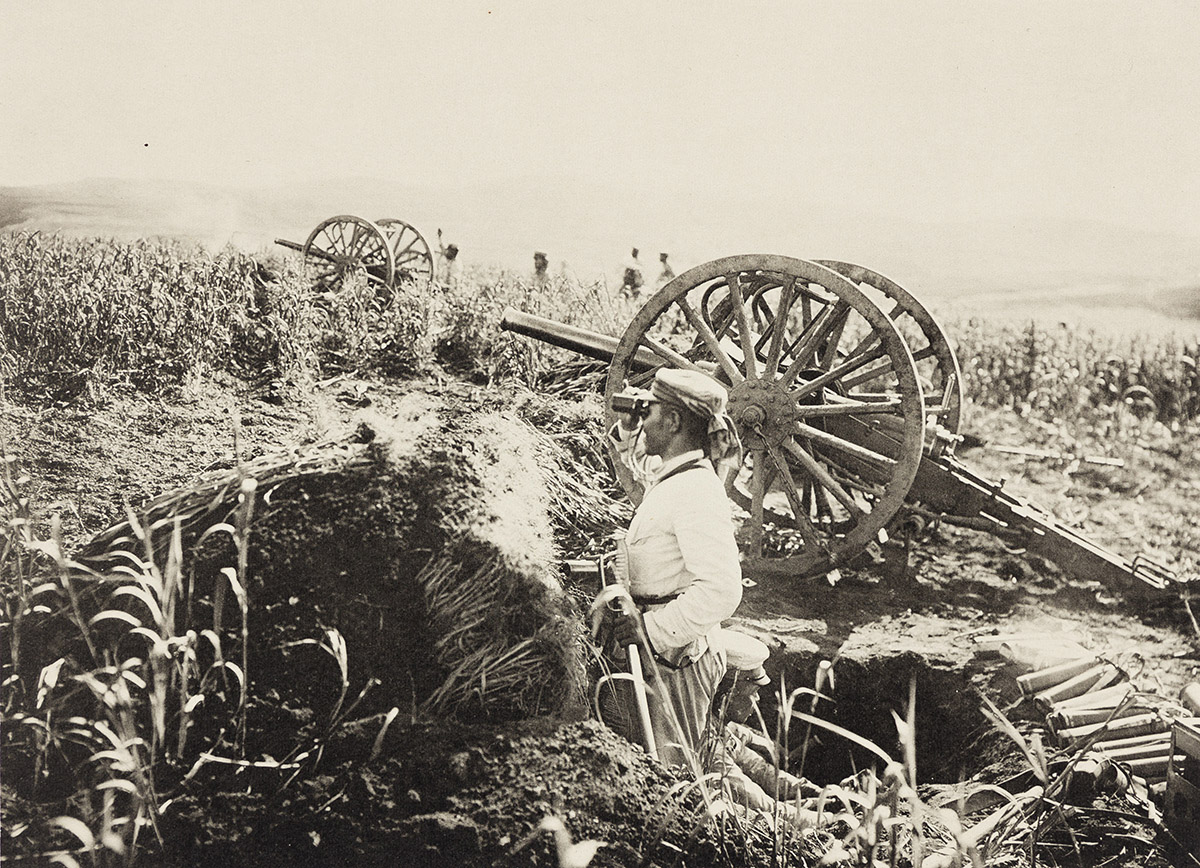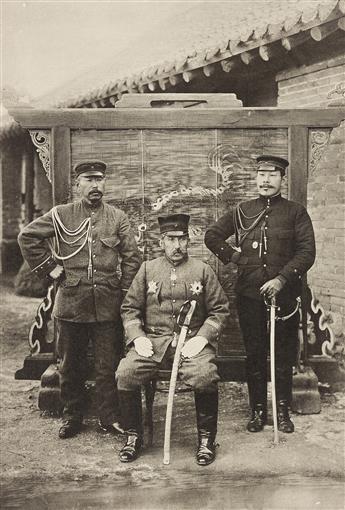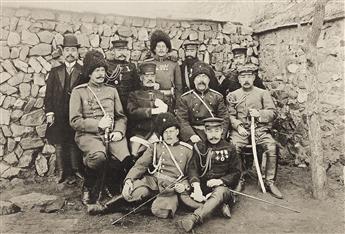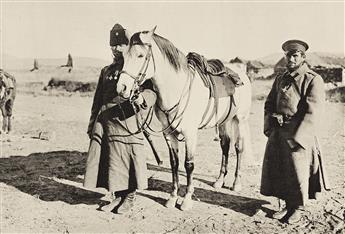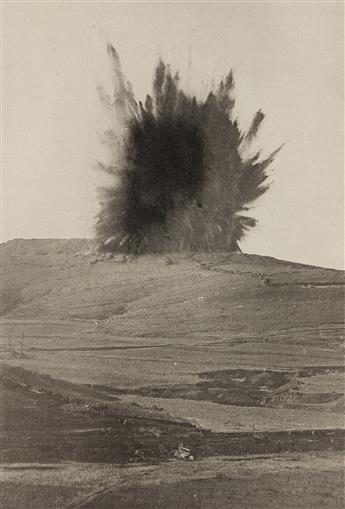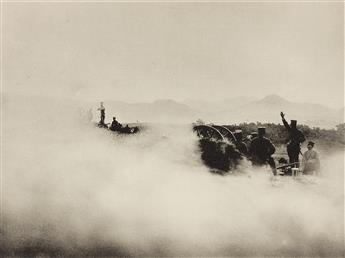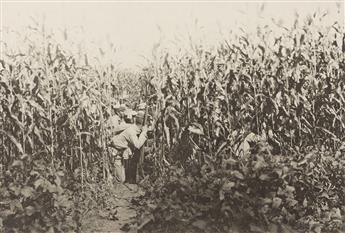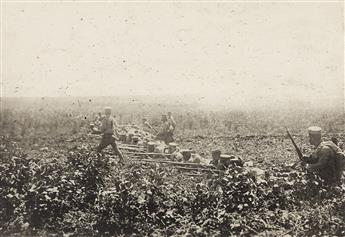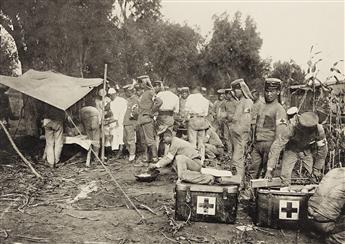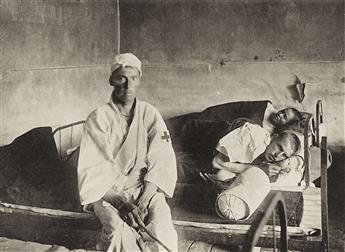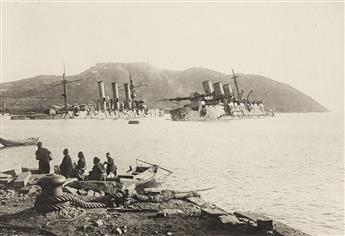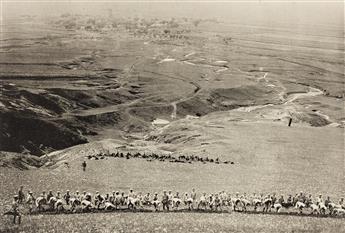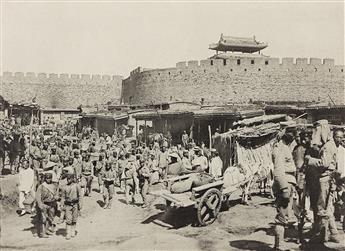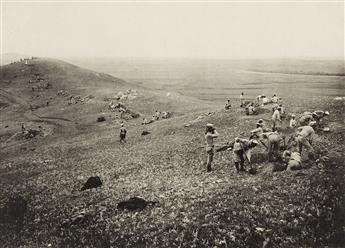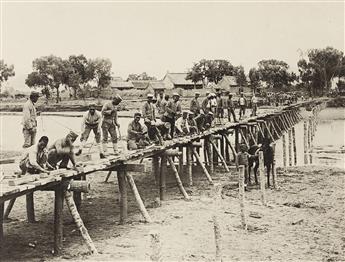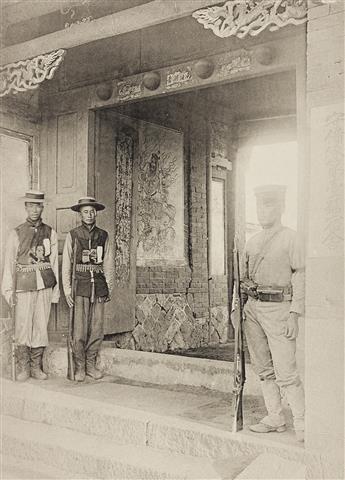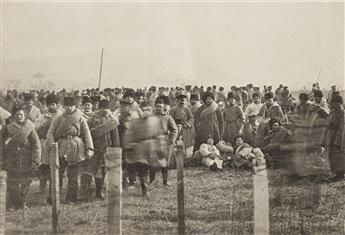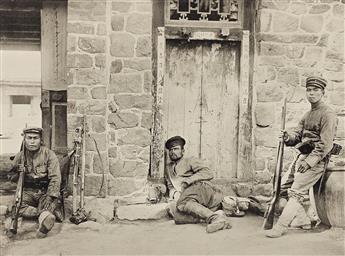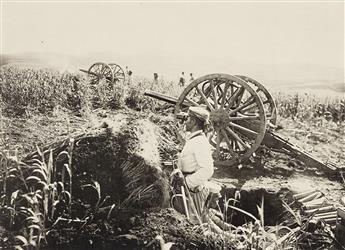Sale 2634 - Lot 120
Price Realized: $ 4,000
Price Realized: $ 5,000
?Final Price Realized includes Buyer’s Premium added to Hammer Price
Estimate: $ 4,000 - $ 6,000
KAZUMASA OGAWA (1860-1929)
A selection of approximately 95 photogravures from three folios depicting the Russo-Japanese War. Photogravures, the images measuring approximately 7x9 1/4 inches (17.8x23.5 cm.), and the reverse, the later mounts 11x14 inches (27.9x35.6 cm.), each with the original English captions on mount verso; enclosed in a custom clamshell box with a red title label and Ogawa's Preface mounted to the inside cover. 1904-05
Provenance: New and Secondhand Bookshop, Mumbai, 1970s; to the Present Owner
WITH--Richard Harding Davis and Captain A.T. Mayan, The Russo-Japanese War (Colliers, 1905), rebound. None of the photographs in this lot appear in this volume.
These photogravures were originally part of several volumes published by K. Ogawa for the Japanese war ministry to publicize their triumph over the Russian Imperial army.
Trained as a photographer in the United States, Ogawa returned home to Japan, where he pioneered employing photographs in Japanese publications that had hitherto illustrated their stories with woodblocks and lithographs. He convinced the Japanese military to allow photographers to accompany their soldiers on their imperial expeditions. His first efforts during the Chinese-Japanese War in 1894-5 were hampered by commanders failing to recognize the military and propagandist value of photographs. But after Ogawa published a folio from that war he and his photographers became widely accepted and were granted permission to photograph actual combat operations in Japan's war with Russia. Ogawa published 23 folios depicting the Russo-Japanese War, of which these are three.
In his preface, Ogawa testified that as a photographic and publishing innovator, he had spent "days and nights on end" to produce the finest gravures possible. Ogawa's photographers captured not just assemblies of men and materiel or the rubbled aftermath of conflict, but images of Japanese troops advancing in ranks on a Russian citadel amid withering fire, of cannonades and explosions, of prisoners of war and Japanese wounded, of a Japanese regimental funeral ceremony, of sunken Russian warships. Among them is coverage of the humiliating Russian surrender of Port Arthur by its commander, General Stessel, for which he was eventually court-martialed and saved from the firing squad only by a reprieve from the Tsar himself.
These images testified not only to Japan's military and industrial debut but to its photographic emergence as well. They rank among some of the 20th century's finest and most immediate battle photography.
The Japanese were intent on disseminating these images as a warning to the English-speaking peoples of their three Pacific Rim rivals: Britain, Australia, and the United States.
A selection of approximately 95 photogravures from three folios depicting the Russo-Japanese War. Photogravures, the images measuring approximately 7x9 1/4 inches (17.8x23.5 cm.), and the reverse, the later mounts 11x14 inches (27.9x35.6 cm.), each with the original English captions on mount verso; enclosed in a custom clamshell box with a red title label and Ogawa's Preface mounted to the inside cover. 1904-05
Provenance: New and Secondhand Bookshop, Mumbai, 1970s; to the Present Owner
WITH--Richard Harding Davis and Captain A.T. Mayan, The Russo-Japanese War (Colliers, 1905), rebound. None of the photographs in this lot appear in this volume.
These photogravures were originally part of several volumes published by K. Ogawa for the Japanese war ministry to publicize their triumph over the Russian Imperial army.
Trained as a photographer in the United States, Ogawa returned home to Japan, where he pioneered employing photographs in Japanese publications that had hitherto illustrated their stories with woodblocks and lithographs. He convinced the Japanese military to allow photographers to accompany their soldiers on their imperial expeditions. His first efforts during the Chinese-Japanese War in 1894-5 were hampered by commanders failing to recognize the military and propagandist value of photographs. But after Ogawa published a folio from that war he and his photographers became widely accepted and were granted permission to photograph actual combat operations in Japan's war with Russia. Ogawa published 23 folios depicting the Russo-Japanese War, of which these are three.
In his preface, Ogawa testified that as a photographic and publishing innovator, he had spent "days and nights on end" to produce the finest gravures possible. Ogawa's photographers captured not just assemblies of men and materiel or the rubbled aftermath of conflict, but images of Japanese troops advancing in ranks on a Russian citadel amid withering fire, of cannonades and explosions, of prisoners of war and Japanese wounded, of a Japanese regimental funeral ceremony, of sunken Russian warships. Among them is coverage of the humiliating Russian surrender of Port Arthur by its commander, General Stessel, for which he was eventually court-martialed and saved from the firing squad only by a reprieve from the Tsar himself.
These images testified not only to Japan's military and industrial debut but to its photographic emergence as well. They rank among some of the 20th century's finest and most immediate battle photography.
The Japanese were intent on disseminating these images as a warning to the English-speaking peoples of their three Pacific Rim rivals: Britain, Australia, and the United States.
Exhibition Hours
Exhibition Hours
Aliquam vulputate ornare congue. Vestibulum maximus, libero in placerat faucibus, risus nisl molestie massa, ut maximus metus lectus vel lorem.





